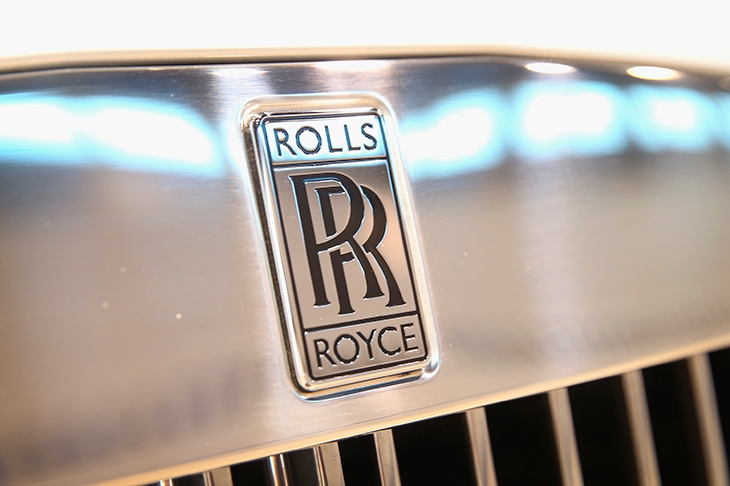The online fashion retailer Boohoo is buying Debenhams without its stores and staff, confirming the demise of the high street. Airlines face quarantine rules that could kill international travel for many months ahead, while the cross–Channel Eurostar rail service cries out for state rescue. The travel and hospitality sectors, alongside what’s left of bricks-and–mortar retail, watch their survival chances evaporating. Amid unremitting economic mayhem, new milestones are easily taken for gravestones. But here’s an optimistic parable from half a century ago.
The bankruptcy of Rolls-Royce on 4 February 1971, crippled by a contract to supply newly developed RB211 jet engines for the US-built Lockheed TriStar aircraft, was a traumatic episode that bears comparison with today’s headlines. Edward Heath’s Conservative government, facing the collapse of a flagship defence manufacturer, was forced to reverse its previous policy of refusing to rescue ‘lame ducks’. Nationalisation of the aero-engine business gave rise, as his biographer John Campbell recalls, to ‘a good deal of public amusement’ at Heath’s expense and the beginning of the slide into the political chaos of 1974. But Rolls-Royce went on to reclaim its position as a world leader, to rejoin the private sector in 1987 — and to live long enough to face the new existential threat of the pandemic.
With hindsight, ministers did the right thing in 1971 even if they paid a political price. And the story had other heroes: Rupert Nicholson was the shrewd receiver who gave Rolls’s car division sufficient budget to launch the Corniche model and go on to independent success against the tide of the failing British car industry; Sir Stanley Hooker was the engineer who came out of retirement to lead a redesign of the RB211 that became one of the company’s most successful products of all time.
The moral for today is that business rebirth is always possible even in the worst of circumstances — but government sometimes has to be the emergency midwife.
No more outcry
Another blast from the past is the news that the London Metal Exchange is to abandon its traditional frenzied bursts of ‘open outcry’ trading across a ring of red leather benches in Finsbury Square and will move entirely to screen-based trading — as every other bourse in London and Europe had already done some time ago. Always a slightly obscure City byway, the 144-year-old LME was enlivened in recent times by the presence of Nigel Farage, a former member who has declared himself ‘very, very sad’ at the closure, and of Yasuo Hamanaka, a Japanese trader who cornered the copper market in the mid-1990s at a cost of $2 billion to his company Sumitomo and served seven years in prison.
But ‘open outcry’ was generally an honest mode of trading, because counterparties looked each other in the eye and assumed they would all keep their word. Electronic trading is much more susceptible to hanky–panky (Libor rate-fixing being a prime example), which is why every word and email of it has to be recorded for later scrutiny by compliance and fraud officers.
A business based on shouting as loud as Farage was bound to lose its place in the modern world, however, not least because it was so masculine: I recall being shocked long ago at Liffe (the London International Financial Futures and Options Exchange, which closed its floor in 2000) by the obscene gestures of the all-male traders in their show-off stripy blazers towards the PR woman who was showing me round. At least in screen-based trading, as we saw in the hot television drama Industry, the smart girls can readily outplay the chauvinistic boys.
Brave billionaire?
This column used to call Sir Jim Ratcliffe, the unspun Mancunian entrepreneur who created the giant Ineos petrochemical group, ‘an industrial hero’. I may think a little less of him since he moved himself to Monaco and his Grenadier off-road vehicle project to the French-German border, having originally promised to site its factory in Wales. But I still regard him as a remarkable business-builder; and if some of the tax he has saved by going offshore is now to be recycled as a £100 million donation to Oxford University to fund an institute for research into antimicrobial resistance, which could cause ten million deaths a year by 2050, I say that’s a thoroughly good thing. Catherine Bennett of the Observer made the opposite argument in a furious rant against Ratcliffe this weekend, but if her left-woke view prevails, what billionaire will be brave enough to endow any university ever again?
Please unmute me
Last week was so hectic I barely paused for breath. I attended a senior common room meeting, a play performance, a Burns Night gathering, a board of trustees, a church service and my own surprise birthday party. I addressed one audience in Manchester and another scattered around the world. I caught up with friends in Santa Barbara, Riga and Umbria. Oh yes, and I went for a walk with a neighbour, my only real human contact beyond the bare necessities of lockdown survival.
It’s extraordinary how Zoom, Teams, FaceTime, WhatsApp and the rest have reshaped the lives even of slow adopters like me. This is surely the fastest technological shift of our lifetimes, far more so than our cautious 1990s adoption of the internet itself, and a huge opportunity for businesses now competing to take video communication to higher levels of sophistication.
But do I yearn for the dark embrace of the theatre, the cut and thrust of the paper-cluttered meeting table, the cacophony of a crowded local eatery like Trattoria da Giggetto on Lake Bolsena, recommended by my Umbrian chum? Of course I bloody well do, achingly, every time the laptop screen reminds me what we’re all missing. The great day of unmuting can’t come too soon.







Comments